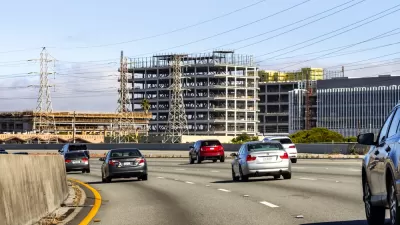New laws eliminate the murky, ‘free-for all’ approach to the policy, letting developers continue to build new housing projects under stricter guidelines.

The California state legislature passed two bills that clarify the ‘Builder’s Remedy,’ a formerly obscure policy that lets housing developments move forward in jurisdictions without state-approved housing elements. Under current law, developers can propose practically any kind of project on any lot.
According to an article on JDSupra, “[Assembly Bill 1893] replaces the ‘free-for-all’ approach to Builder's Remedy, and projects now must comply with new site restrictions, density limits, certain objective local standards and other mandated requirements. In exchange for these new restrictions, AB 1893 eases certain affordability requirements and offers Builder's Remedy applicants more explicit protection from common tactics used by opponents of Builder's Remedy projects.”
The policy came into sharp focus in recent years as more developers sought to apply it and the state cracked down on housing element noncompliance. The new bill sets stricter regulations for developers that will prevent projects from completely disregarding local standards while easing some regulatory burdens. “A companion law, AB 1886, clears the path for existing and future Builder's Remedy projects by foreclosing a number of legal arguments that anti-Builder's Remedy jurisdictions frequently employ to frustrate these projects.”
The bills await Governor Gavin Newsom’s signature.
FULL STORY: California Legislature Passes Major Reforms for "Builder's Remedy" Projects

Planetizen Federal Action Tracker
A weekly monitor of how Trump’s orders and actions are impacting planners and planning in America.

Maui's Vacation Rental Debate Turns Ugly
Verbal attacks, misinformation campaigns and fistfights plague a high-stakes debate to convert thousands of vacation rentals into long-term housing.

Restaurant Patios Were a Pandemic Win — Why Were They so Hard to Keep?
Social distancing requirements and changes in travel patterns prompted cities to pilot new uses for street and sidewalk space. Then it got complicated.

In California Battle of Housing vs. Environment, Housing Just Won
A new state law significantly limits the power of CEQA, an environmental review law that served as a powerful tool for blocking new development.

Boulder Eliminates Parking Minimums Citywide
Officials estimate the cost of building a single underground parking space at up to $100,000.

Orange County, Florida Adopts Largest US “Sprawl Repair” Code
The ‘Orange Code’ seeks to rectify decades of sprawl-inducing, car-oriented development.
Urban Design for Planners 1: Software Tools
This six-course series explores essential urban design concepts using open source software and equips planners with the tools they need to participate fully in the urban design process.
Planning for Universal Design
Learn the tools for implementing Universal Design in planning regulations.
Heyer Gruel & Associates PA
JM Goldson LLC
Custer County Colorado
City of Camden Redevelopment Agency
City of Astoria
Transportation Research & Education Center (TREC) at Portland State University
Jefferson Parish Government
Camden Redevelopment Agency
City of Claremont





























